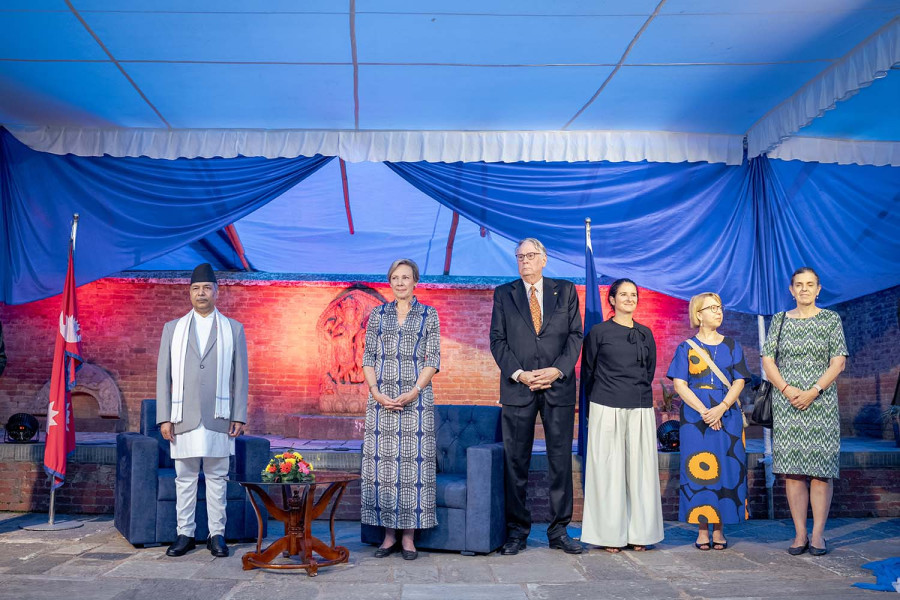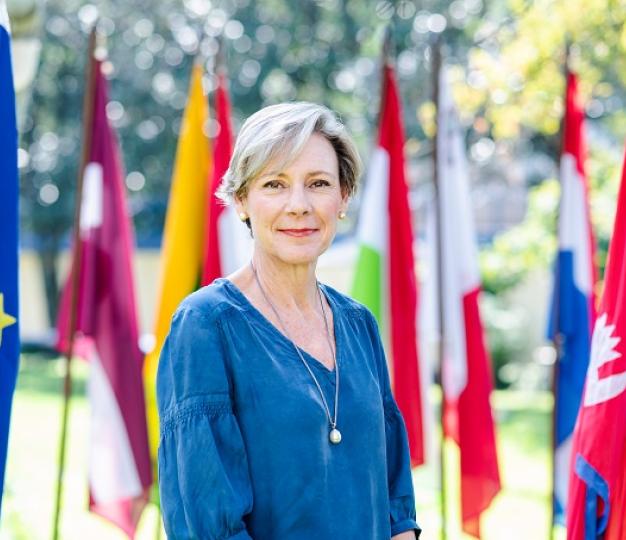Columns
We are stronger together
The European Union will continue to champion an open, inclusive, equitable and pluralistic world.
Veronique Lorenzo
This year, 2025, is a special year for the European Union. Today, on May 9, we mark 75 years since the signing of the Schuman Declaration, the first step towards the establishment of what is now the European Union. The principles of community, solidarity and cooperation that have driven our Union of 27 Member States and 450 million citizens remain as important today as they were in 1950, even more so in the face of unprecedented challenges to the multi-lateral rules-based order.
Last year, after elections in July 2024, we welcomed a new European Commission. While Ursula Von Der Leyen continues as our President, Kaja Kallas is now our Vice-President and High Representative for Foreign Affairs and Security Policy. The new Commission will strive to make Europe simpler and faster for European citizens. Through the Global Gateway, it will adopt a more strategic approach to the European Union’s partnerships with countries around the world, including Nepal. The Commission will also focus on strengthening Europe’s security and defence in light of the continuing Russian war of aggression against Ukraine.
It has been three years since Russia’s full-scale war against Ukraine. This illegal and unprovoked aggression against a friendly neighbour poses significant threats to Europe and the world. Russia has sought to internationalise the war by seeking support from countries like North Korea, Iran and China, while also deceiving desperate Nepalis to join the war by offering monetary incentives that often do not materialise. The European Union has been Ukraine’s steadfast and reliable partner, and we remain unequivocally committed to supporting Ukraine against Russia’s neo-colonial, imperialist war against a sovereign member of the international community.
As global challenges grow, so does our determination to remain a reliable, consistent, predictable and principled partner. “This new engagement with countries across the world is not only an economic necessity—but a message to the world. We want more cooperation with all who are open for it,” said President Ursula von der Leyen.
We are thus committed to our friends further away from the European continent. In 2024, we celebrated 50 years of relations between the European Union and Nepal. This half century has been marked by a loyal and constant partnership where the European Union, together with EU Member States as Team Europe, has supported Nepal in its quest for resilient, sustainable and inclusive development. Under our newly launched Global Gateway initiative, we are supporting new interventions in critical areas like education and green growth. Global Gateway harnesses the resources from the European Union, its Member States and their financial institutions, the European Investment Bank and the European Bank for Reconstruction and Development.
In the education sector, where we have partnered with the Nepal government since 1999, we now have the Global Gateway “Nepal Quality Education for All” initiative. Team Europe’s support for the School Education Sector Plan (SESP 2022-2032) seeks to make Nepal’s education sector more inclusive, especially for girls and marginalised communities, while supporting implementation of the education sector policy at all levels of government and supporting teacher training. Our grant support of around 50 million euros is built around three pillars: equitable and inclusive access to education, training teachers to adopt modern and effective pedagogical methods; and promoting good governance within the educational system by enhancing coordination and collaboration across all three tiers of government.
Under our Global Gateway flagship project ‘South Asia Energy Connectivity’, we are also excited to partner with Nepal on clean energy and inclusive green growth, both of which we are very passionate about in Europe. We have committed over 50 million euros to promote and develop renewable energy and energy efficient solutions with the involvement of both the government and private sector. We also want to make sure that the energy generated reaches all Nepalis, regardless of caste, creed or geography, through efficient transmission and distribution lines. These include the recently completed 28-kilometre extension of the Chilime-Trishuli transmission line, which will now bring electricity to hundreds of households in Nuwakot and Rasuwa districts. In so doing, we support the government’s ambitious goal of ensuring 100 percent access to electricity by 2030 and net zero emission by 2045.
Adaptation to climate change is a crucial part of our Global Gateway investment agenda, and the European Union continues to stand with Nepal as it deals with the consequences of climate change. We are currently supporting farmers in Sudurpashchim and Karnali Provinces prepare for the effects of climate change through the Green Resilient Agricultural Protective Ecosystems, implemented by GIZ.
The world is changing rapidly. What was once a globally connected world is fast fragmenting. It is more important than ever before to build lasting relationships and work together to find solutions to the challenges ahead. Nepal and the European Union must stand together on our shared values—democracy, human rights, rule of law, and equality—which have formed the bedrock of our partnership for the last 50 years.
Despite global upheaval due to new and old challenges to the prevailing rules-based order, the European Union will continue to stand with its partners. We will continue to champion an open, inclusive, equitable and pluralistic world that does not leave anyone behind. We are always stronger together.




 8.22°C Kathmandu
8.22°C Kathmandu















